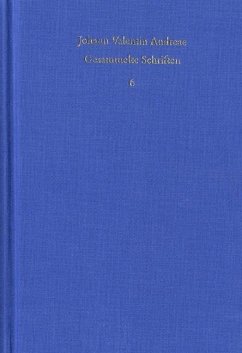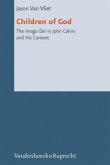Die vorliegenden fünf kürzeren Traktate vervollständigen Andreaes Ideen zur religiösen und gesellschaftlichen Reform. Die beiden 'Invitationes' und die 'Dextera Amoris Porrecta' entwerfen eine Johann Arndt folgende, allegorisch-spiritualistische Liebestheologie und nehmen Überlegungen der Rosenkreuzerschriften (vgl. Bd. 3) zur Gründung eines die Frömmigkeitsreform vorantreibenden elitären Bundes auf. Die kurze 'Imago' konzentriert sich demgegenüber auf eine Reform aller wissenschaftlichen Disziplinen; bemerkenswert sind die Betonung ihres enzyklopädischen Zusammenhangs und die konkreten Hinweise zur Durchführung und Organisation der Forschung. Das 'Unionis Specimen' gehört in die Vorgeschichte des Pietismus. Es handelt sich um die Programmschrift für einen Zusammenschluss reformorientierter protestantischer Theologen, der - wohl als einziges der Andreae'schen Projekte - auch faktisch existiert hat.
»Dieser sorgfältig gemachte Band ist für die Andreae-Rezeption wesentlich und erhellend für die Rosenkreuzerforschung, womit er sich für ein breiteres Lesepublikum empfiehlt.« Gnostika »erfreulich präsentieren sich die von Böhling herausgegebenen Schriften zur christlichen Reform [...] in einer eigenen, gut lesbaren neuhochdeutschen Übersetzung [...] welche die Rafinesse und den rhetorischen Impetus des Andreaeschen Lateins auch im Deutschen einzufangen versteht.« Sibylle Rusterholz, Morgen-Glantz »Die beiden mustergültig vorbereiteten Bände der Andreae-Edition bieten also zweifachen Gewinn: Erstens wird die Erforschung des frühen Rosenkreuzertums auf eine solide Basis gestellt, zweitens liefern sie ein Übersicht über die sich seit den Rosenkreuzerschriften formierende gedankliche Entwicklung einer christlichen Reform, die bei Andreae bis zu utopischen Gesellschaftsplänen führte. Die beiden Bände der großzügig angelegten Andreae-Edition stellen somt einen wichtigen Beitrag zur Geschichte der Frühen Neuzeit dar und lassen auch für die künftigen Bände nur das Beste hoffen.« Martin Zemla, Acta Comeniana»This new edition of the 'Schriften zur christlichen Reform' makes available to readers what ought to be the essential legacy of Johann Valentin Andreae, a legacy that has been unfortunately obscured by the unavailability [of] texts. As such, it is a most welcome addition to Andreae scholarship. With each new volume of the 'Gesammelte Schriften' that appears, the portrait of this educational and social reformer, who so embodied the Protestant culture of Germany in the transition from Renaissance to Baroque, becomes more complete.« Seventeenth-Century-News
»This new edition of the 'Schriften zur christlichen Reform' makes available to readers what ought to be the essential legacy of Johann Valentin Andreae, a legacy that has been unfortunately obscured by the unavailability [of] texts. As such, it is a most welcome addition to Andreae scholarship. With each new volume of the 'Gesammelte Schriften' that appears, the portrait of this educational and social reformer, who so embodied the Protestant culture of Germany in the transition from Renaissance to Baroque, becomes more complete.« Seventeenth-Century-News»Dieser sorgfältig gemachte Band ist für die Andreae-Rezeption wesentlich und erhellend für die Rosenkreuzerforschung, womit er sich für ein breiteres Lesepublikum empfiehlt.« Gnostika »erfreulich präsentieren sich die von Böhling herausgegebenen Schriften zur christlichen Reform [...] in einer eigenen, gut lesbaren neuhochdeutschen Übersetzung [...] welche die Rafinesse und den rhetorischen Impetus des Andreaeschen Lateins auch im Deutschen einzufangen versteht.« Sibylle Rusterholz, Morgen-Glantz »Die beiden mustergültig vorbereiteten Bände der Andreae-Edition bieten also zweifachen Gewinn: Erstens wird die Erforschung des frühen Rosenkreuzertums auf eine solide Basis gestellt, zweitens liefern sie ein Übersicht über die sich seit den Rosenkreuzerschriften formierende gedankliche Entwicklung einer christlichen Reform, die bei Andreae bis zu utopischen Gesellschaftsplänen führte. Die beiden Bände der großzügig angelegten Andreae-Edition stellen somt einen wichtigen Beitrag zur Geschichte der Frühen Neuzeit dar und lassen auch für die künftigen Bände nur das Beste hoffen.« Martin Zemla, Acta Comeniana


